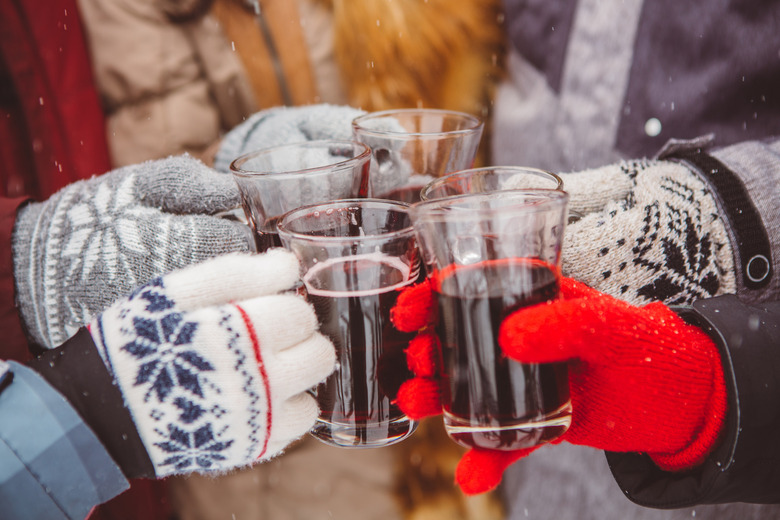Cold Weather Makes People Drink More Alcohol: Study
The stereotype about Russians and vodka just might be true — they really do drink more. But according to new research published in the journal Hepatology, it might be the weather that drives them to do it. The study showed that people in frostbitten, chilly parts of the world actually do drink more alcohol.
10 Alcohol Facts That Just Aren't True
"It's something that everyone has assumed for decades, but no one has scientifically demonstrated it," senior author Ramon Bataller, M.D., Ph.D. told Science Daily. "Why do people in Russia drink so much? Why in Wisconsin? Everybody assumes that's because it's cold." In fact, a 2018 report from the Centers for Disease Control and Prevention showed that the U.S. states that consume the most alcohol almost all experience colder weather.
The study, conducted by the University of Pittsburgh Division of Gastroenterology, showed that as temperatures dropped and hours of sunlight diminished, alcohol consumption increased. Additionally, these climate factors were associated with higher levels of binge drinking and liver cirrhosis. They found these associations by analyzing data from the World Health Organization and the World Meteorological Organization from a total of 193 countries.
This makes sense; when it's freezing cold outside, a glass of wine or a cozy winter cocktail can bring you some much-needed warmth. It's not just your imagination that booze eases the feeling of freezing cold temperatures. Alcohol is a vasodilator — a substance that increases the flow of blood (and therefore warmth) to the skin. When the weather gets frightful, a glass of wine really is delightful. But this study shows that in cold weather, people are also more likely to overdo it — and that could be dangerous.
According to the study authors, other factors may play a role in these trends, as well. Fewer hours of sunlight are correlated with higher rates of depression — and depression is a risk factor for binge drinking.
The authors explain that while they tried to control for religious and cultural influences on drinking behavior, these could still have affected the results. "The role of other residual confounding factors, such as the type and number of alcoholic policies by country, cannot be ruled out," study author Meritxell Ventura-Cots, Ph.D., told The Daily Meal. "Also, we were working with limited data that didn't capture seasonal trends or the consumption of homemade alcohol."
Ventura-Cots said that the study authors hope that future research will investigate the impact of things like vitamin D deficiencies and depression on drinking behavior. You really need to pay attention to your levels of vitamin D, especially when it's cold and dark outside. A lack of this vitamin can have more of an effect on your body than you might think!
